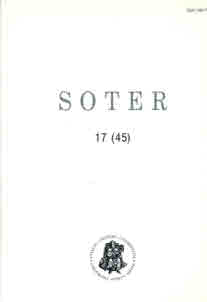Ar laisvamanybė, kaip politiškai privilegijuota ideologija, nepažeidinėja tradicinių religinių bendruomenių ir bendrijų teisių?
Does laicism as politically privileged ideology violates the rights of traditional confessions
Author(s): Kazimieras MeiliusSubject(s): Christian Theology and Religion
Published by: Vytauto Didžiojo Universitetas
Summary/Abstract: The legislation of the democracies seeks usually to reflect upon the religious attitudes and demands of the majority, especially in such areas of social life as human rights, liberties of conscience and religion. The State which respects the justice is considered as a State under the rule of law. The justice defines the basis of the State: Justitia est fundamentum regnorum. According to the commitments between Lithuania and the Holy See, which are articulated in the international bilateral agreements, and to the Constitution of Lithuania, other legal acts, norms of Canon law one can come to the conclusion that Lithuania still inefficiently warrants the standing of traditional confessions in the contemporary society. Elected members of Seimas do not take seriously the provisions of international agreements concluded between Lithuania and the Holy See. In our analyzed case when traditional confessions are granted the legal recognition in virtue of their contribution to the history, social and cultural life of the country and at the same time some granted rights are rejected in the practice, one should remember one of the main ontological principles – once the action is legally regulated, it can not be at the same time tolerated and interdicted.
Journal: SOTER: religijos mokslo žurnalas
- Issue Year: 45/2006
- Issue No: 17
- Page Range: 99-130
- Page Count: 32
- Language: Lithuanian

